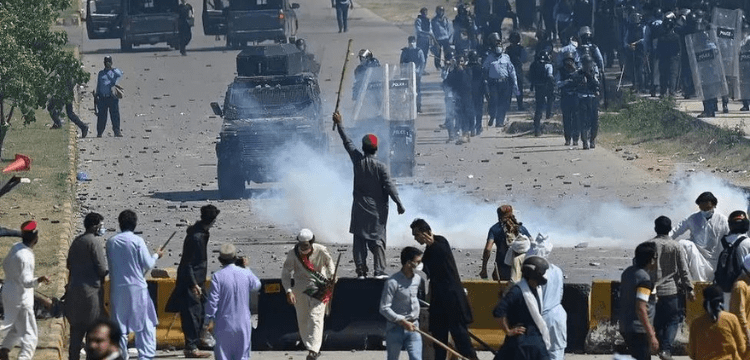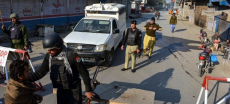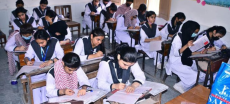[vc_row][vc_column][vc_column_text dp_text_size=”size-4″]ISLAMABAD: The Human Rights Commission of Pakistan (HRCP) declared on Wednesday that the country’s numerous crises could not be resolved unless all political actors refrained from taking any more actions that may jeopardise the nation’s precarious democracy. The government’s inability or unwillingness to defend civilian supremacy or to safeguard the dignity of parliament, according to the human rights organisation, has proven to be utterly unacceptable. The speech was made by Hina Jilani, chair of the HRCP. In the statement, it is said that “the HRCP has closely followed the ongoing political crisis and notes with great alarm that civilian supremacy has emerged as the greatest casualty.”
Additionally, “the political opposition’s history of hostile politics and contempt for the rule of law has played no small part in causing the wanton destruction of property during 9-10 May,” the statement continued. These protests were not peaceful. The evidence suggests riots, looting, vandalism, burning, and trespassing on both public and private property. The statement also claimed that the judiciary had failed to maintain its impartiality and unity, which had major ramifications for the separation of powers.
It expressed sadness that the country’s rule-of-law situation had worsened as a result of the judiciary’s inability to credibly uphold its independence and impartiality. The HRCP emphasised that any claims of abuse and torture in detention against political workers and PTI supporters should be subject to an impartial investigation even though they had not yet been confirmed. The HRCP stressed that those responsible for the damage of public and private property must be held accountable and that there are enough provisions in the civilian laws for it. The HRCP expressed worry over the trial of civilians under the Army Act.
Article 2(1)(d) of the Act, which permits civilians to be tried in military courts and so denies them their constitutional right to a fair trial, should be repealed by any administration that is sincerely devoted to defending civilian primacy. The HRCP also took issue with how arbitrarily some cases were chosen for trials by the military tribunals, “thereby violating the principle of equality before the law and equal protection” of the law.
The HRCP emphasised that all political parties must follow democratic, peaceful, and legitimate means of advancing their political agendas. It claimed that banning a political party would not benefit Pakistan’s political system. “We consider any attempt by the government to criminalise the PTI to be both irresponsible and out of proportion. In the long run, it would strengthen a bad precedent and stop political parties from naturally changing to reflect the preferences of their constituents.
Additionally, the HRCP opposed pushing back the general elections until October 2023. It continues by stating that the government’s decision “would amount to derailing the democratic process and escalating the current political instability.” The country will be exposed to more ill-conceived and undemocratic political “experiments” if the elections are anything other than free, fair, and credible in an environment that allows the practise of all fundamental freedoms, the statement warns.
The HRCP stated that democracy “cannot be built on fluid loyalties and shifting narratives,” adding that non-political forces “are wresting the space for which Pakistani civil society has fought long and hard.” The HRCP objected severely to the strategies used in the attempt to reverse-engineer the democratic process, but it also condemned what it considered as political engineering in the 2018 elections.
Also Read: Pakistan Wants to Sign A “NEW” IMF Agreement[/vc_column_text][/vc_column][/vc_row]











